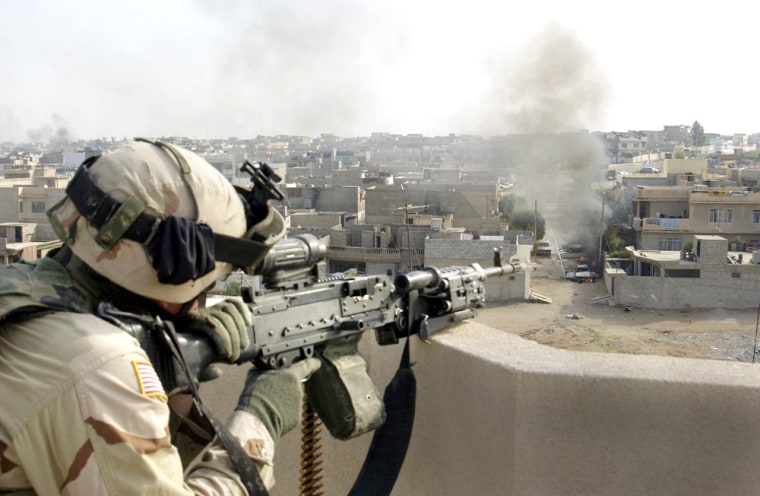The insurgency in Iraq poses a bigger obstacle to rebuilding Sunni-dominated parts of the country today than it did six weeks ago, the coordinator of U.S. reconstruction aid said Friday.
William Taylor, speaking from Baghdad in a video teleconference with reporters at the Pentagon, said the problem has grown worse in the Sunni Triangle north and west of Baghdad, and in Mosul, the city in northern Iraq where insurgents briefly overran police stations earlier this week.
Taylor is director of the Iraqi Reconstruction Management Office in the U.S. Embassy.
“In the Sunni areas and then up in Mosul it is worse today than it was, and we’re having greater difficulties from security,” he said. “We’re worried that in some areas — again, not all — in some areas it would now be difficult to have elections,” and so it is important that reconstruction work speed up so that voting can take place nationwide in late January, Taylor added.
He said reconstruction is proceeding without much problem in southern and northeastern Iraq.
Strategy: 'Start as many projects as we can'
Charles Hess, director of reconstruction contracting, appeared with Taylor and said that although “security is still a serious concern,” U.S. officials believe they can overcome it.
“One of our mechanisms to deal with that, frankly, is to start as many projects as we can, given the fact that we know the insurgents can’t be everywhere,” Hess said. “Consequently, the more projects we start, we are moving Iraqis out, we’re getting them employed, they are doing meaningful labor, they’re restoring their country, and in and of itself that is a very positive and powerful thing we want to accomplish between now and the elections in January.”
Hess said insurgent sabotage is a problem, particularly in the oil industry that is the backbone of Iraq’s economy.
Fallujah to get $100 million
Taylor said upward of $100 million in U.S. and Iraqi government funds will be spent to rebuild Fallujah, which suffered extensive damage during the U.S. offensive this month. He said security there is not yet sufficient to begin reconstruction but that within a week or two he expects to start restoring basic services like electricity, water and sewage. He said $8 million is earmarked for water supply improvements and $4 million to build four new schools.
Of the $18.4 billion in Iraq reconstruction funds allocated by Congress last year, only $1.7 billion has been spent, Hess said, an increase of about $400 million from six weeks ago. He said 873 construction projects have been started, up from 703 six weeks ago. The goal is to have 1,000 started by year’s end.
